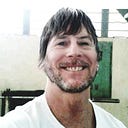Woodstown
My hometown is Woodstown, New Jersey. Located in the southern part of the state about 30 miles east of Philadelphia roughly equidistant to Atlantic City further east along Route 40, it’s a small town with a population of about 3,500 people. It has one high school, Woodstown High, and from what I remember, one traffic light, at the intersection of Main Street and East Avenue. Come to think of it, there are more lights now, but still a small town.
Woodstown is a sylvan hamlet that is oddly Southern. Delaware, where slavery was legal until after the Civil War, is 20 minutes south. Some vestiges of that era were still present in the 70s when I was growing up. Exclusion, segregation and racism were common.
For example, the Chestnut Run Swim Club had only white members, yet was located in the “black” part of town. Members could swim for free. Guests had to pay, unless invited by a member. I think you had to bring your own towel.
One day my neighbor, Scotty Battle invited his friend Delbert Hickman, who was black, to come and swim as his guest. Delbert was a popular kid and well-liked in the town. He was a good athlete and a good student. He kept his place.
When he came to the club that day members began to talk and when Delbert jumped in the pool the other people, the older, white club members, got out. It didn’t happen all at once but was noticeable. I’m sure Delbert noticed it. Pretty soon the pool was empty. Delbert got out too.
I wasn’t there that day so the story was relayed to me second hand. But I knew enough about Woodstown, its racial divisions and the club, to know the story was true.
What would I have done if I was there that day? Would I have jumped in the water with Delbert or looked around to see what my friends were doing?
I thought I was enlightened at 13. I read Kafka and Vonnegut. My parents were Kennedy Democrats. I had no doubt that I would have done the right thing.
Some years later I would find that I wasn’t so enlightened after all.
My hometown was divided. The rich tended to live in the Laurel Hills section outside of town and commuted to Philadelphia. The country kids lived on farms and the rest of us lived within the borough limits of Woodstown.
Within the borough confines there were further divisions.
The “black” part of town, ironically, bordered the segregated Chestnut Run Club along East Millbrooke Avenue.
That’s where Sheila lived.
I met Sheila Nolan in my junior year. We were in the same art and literature classes. She was smart and pretty; a terrific painter and poet. A track star too. We read the same books, listened to the same music and I made her laugh. She liked that about me, I guess.
She had her friends and I had mine. Drifting between the jocks and stoners, I belonged to both and neither. Still, we grew close. One day when we were leaving class things changed.
She wanted to ask me something.
“Let’s go to the homecoming dance. But not as friends, okay?” I remember she had trouble saying that. The thing is that I had wanted to ask her out for the longest time and here she had beat me to it.
She extended herself, made herself vulnerable and gave me the chance to be honest, and noble in return. Instead, I made an excuse, tried to make a joke, regretted it instantly. I tried to rescue the situation but things were never the same between us after that.
A few years later, after we’d both left Woodstown, I’d learned that she had gone on to art school in Philadelphia. I was in California and not amounting to much.
One day, while ransacking my closet for something, I found my yearbook. I’d looked at it infrequently over the years, read the inscriptions from classmates and friends, good times, not so good times. Faces on pages frozen in time, the dreams and aspirations still there.
Sitting on the bed I opened it.
There I sat turning the glossy pages when I came across some writing that I’d never noticed before; a note from Sheila, but never remembered her leaving it.
Here’s what it said:
Sorry, I put you on the spot that day.
I know you wanted to go with me. Why didn’t you? It would have been fun, like our classes together, except that we would have had music and a starry night.
Like Van Gogh, remember?
And maybe a long walk home after that dance. Under that starry night.
A walk to my house. On the black side of town. That’s where I live.
Thanks for saving me. You did that without ever knowing it cuz I had some stuff in my life that wasn’t good, things that I never told you about. Maybe someday I will?
You were a good friend and so funny that you made me forget about the bad stuff.
I guess I wanted more. I still do.
If you ever find yourself in my part of town, you know you can always come to me.
You know where I live.
Sheila
I didn’t move for the longest time and could hear only my heart beating. I just sat there on the bed and thought about her.
I formed a plan to fix my car, quit my stupid job (I barely worked anyway) and drive east to find her. We’d live in Philadelphia. She could paint. I’d find work doing something. I’d make her laugh and she would love me for it. Even I could paint this picture.
Of course, I never did any of it. Take chances when you have them.
I closed the book.
